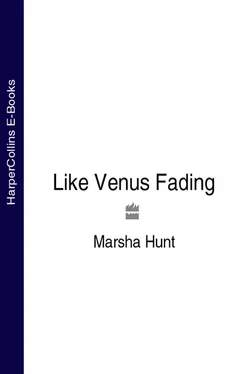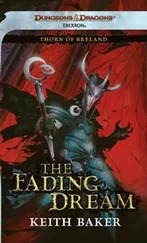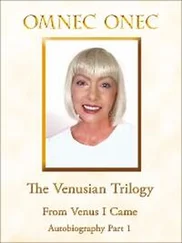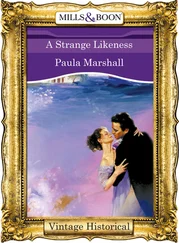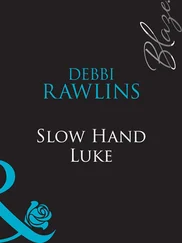1 ...8 9 10 12 13 14 ...17 We took the bus south and although Mother tried to look happy and tell us that living with Mamie was going to be good for us, I faced the prospect with as much dread as my sister, because she was the leader then. Lilian was going to turn ten that June and kept reminding me that I was going to miss my Holy Communion.
‘Can’t I take it in “Sippy”?’ I asked Mother when we settled on the bus.
But Lilian pinched me to be quiet.
On the bus one woman talked about President Hoover as though he were God or a magician, but nobody could fix what had taken years to happen.
Our driver between North and South Carolina was one of those men born heartless or else his generosity had been stretched to the limit.
It was getting dark when he tried to get rid of a dirty, blond, sunburnt woman who boarded the bus at a deserted stop with four children and no tickets. He expected some of his passengers to help him, but everybody just sat there tight lipped. The grown ups were watchful, knowing they could be in her shoes.
The woman, whose old-fashioned straw sun bonnet shadowed her sunken cheeks, pleaded in a flat, southern drawl. ‘We gotta get to Knoxville.’
With one arm, she cradled a baby on her hip, while her bow-legged toddler clung to the frayed hem of her floral dress. His dirty diaper was around his knees, and mucus streamed from his nose. Her two eldest boys, probably younger than I was, had struggled to climb on board with a burlap sack the size of a pillow case. The small cardboard suitcase in her free hand was more worn out looking than Mother’s big carpet bag which had a piece of clothesline for a handle.
When a pot fell out of their burlap, making a racket as it clanged down the bus steps, the driver threatened to push the five of them off. Though I didn’t know where or how it would come, my every muscle was braced, anticipating violence.
Mother poked Lilian in the side and mouthed, ‘White trash,’ which made my sister and I smile for the first time in two days.
We were one of only three coloured families uneasily parked at the back of the bus. Scared to even whisper, because to remain invisible was the nearest thing we had to self-defence. Mother admitted years later that she’d been afraid that the driver was going to tell the woman that she could have our seats and that we’d be the ones turfed off.
During that journey I got my first glimpse of the way that twilight gradually blackens green hills. I still had the childish audacity to feel occasional pangs of joy at the sight of a baby lamb with its mother. I saw the silhouettes of herds of horses and cows as darkness fell. What I couldn’t see was that my childhood was nearing its end.
As the bus bumped along, Mother’s head bobbed in sleep. She was leaving Camden behind, but Lilian and I took it with us. I worried from time to time whether Mack would somehow tell her about the caramels.
I kept thinking about the previous morning when I’d sat at my desk in St Anthony’s, fidgeting with the empty inkwell and a girl told Sister Elizabeth that she’d dreamt that Mack had cut off Sister Octavia’s head. Then the Italian boy who had arrived in the middle of the term from New York raised his hand to say that he had had a nightmare too. But none of them could have been as scared as I was, expecting each night to be strangled in my sleep by Mrs O’Brien’s ghost.

Mississippi was the crud between my toes from walking barefoot on the dry, crusty soil. And Mississippi was learning to stand back far enough when the man made soap by adding lye to the hog grease. ‘Stand back, gal,’ he’d say, ‘If this lye catches you, it’ll burn so bad you wish you was in hell.’ Mississippi was also Mother’s coy laughter when a ninety-year-old from Mamie’s church patted her behind and told her, ‘You’re the juiciest Lucy I seen outside Biloxi.’ And Mississippi was the wasted hope that Mother could make enough to feed us, by giving recitations up and down the Delta.
She had been gone too long to appreciate flattery from a hardworking cotton picker and she felt superior to the sharecroppers who raised their broken straw hats to her whenever she crossed their tenant farms. She had thought that she was back to stay, but when women at the small churches where she’d recite would complain about the white families they served, Mother would describe the Herzfelds as saints and brag about their mahogany highboy heavy with crystal and silver, like somebody homesick.
Once Mamie heard Mother say, ‘Jews. I’d work for ’em any day, rather than these Mississippi crackers.’ Mamie scoffed, ‘Ruthie, there ain’t no Jews ’round here. And nobody cares that you was Jew-rich up Jersey way. If you want coloured folk to give you a dime at prayer meetings, keep that Jew talk to yourself.’
Mamie McMichael was dangerous.
She talked a lot about God but she was more fixated by money and getting back what she thought she was owed by the local whites.
On moral grounds Lilian refused to eat the chicken that Mamie stole from the cotton planter near her farm. Mamie scolded after beating my sister, ‘That bastard owes me. Since I was a bitty thing, he been fixing the scales that weighs cotton that my folks bent over ’til they couldn’t stand up. But them ole nuns didn’t teach you ’bout that.’
Lilian still said her rosary every night, kneeling before her small altar set up in Mamie’s kitchen. Arranged with the same items that she’d had in our room above Mack’s, it made Mamie’s place more like home, although Mother had burned the novena candle down to nothing the night before we’d left Camden.
Had Mother not whispered to Mamie about ‘the landlord and his wife’, I might have forgotten about Mack altogether, because there was a lot to discover in Bofield, and Mamie’s home-made peanut brittle was as satisfying as caramels. Some mornings before the sun became a hot poker, I’d wander off alone to look for rabbits or search for grasshoppers in the tall, scorched crabgrass. Even lugging buckets of water from the pump to the kitchen seemed like fun as long as Mother didn’t make me do it. But during those three and a half months that Mamie’s ten acres became my wonderland, I was most awed by the way her fingers produced songs on the piano. She’d ask Mother to sing along. ‘Ruthie,’ she’d beg, ‘anybody that can recite like you, got to have some music in ’em. Let’s hear the chorus of “Gracious Lord”,’ she’d say and bang out a minor chord.
Mother found every excuse from ‘Woke up with a frog in my throat’ to ‘I can’t waste time singing when I’ve got passages to learn.’
Her recitations were more popular with me that Mississippi summer than anybody, apart from that ninety-year-old man whose name I never knew but who turned up to sniff around Mother in the yard like a mangy old Tom cat. Her figure was filling out again from Mamie’s fatback, beans and rice. Listening to my mother learn her Bible passages was better than radio, because she’d let me interrupt. She didn’t know the meaning of every verse she recited, but she chose the easiest pieces which she’d practise aloud on the porch while I fought back the blue flies and picked at the scabs I got from scratching my mosquito bites.
I heard Mother practising her pieces so often that I knew some and could mouth the words with her. My favourite was the story of Hannah asking the Lord for a son. First chapter of the Book of Samuel. Mother repeated it so often it hypnotized me like a Latin mass. Mother’s bible stories were easier for me to follow than the catechism at St Anthony’s.
Читать дальше
